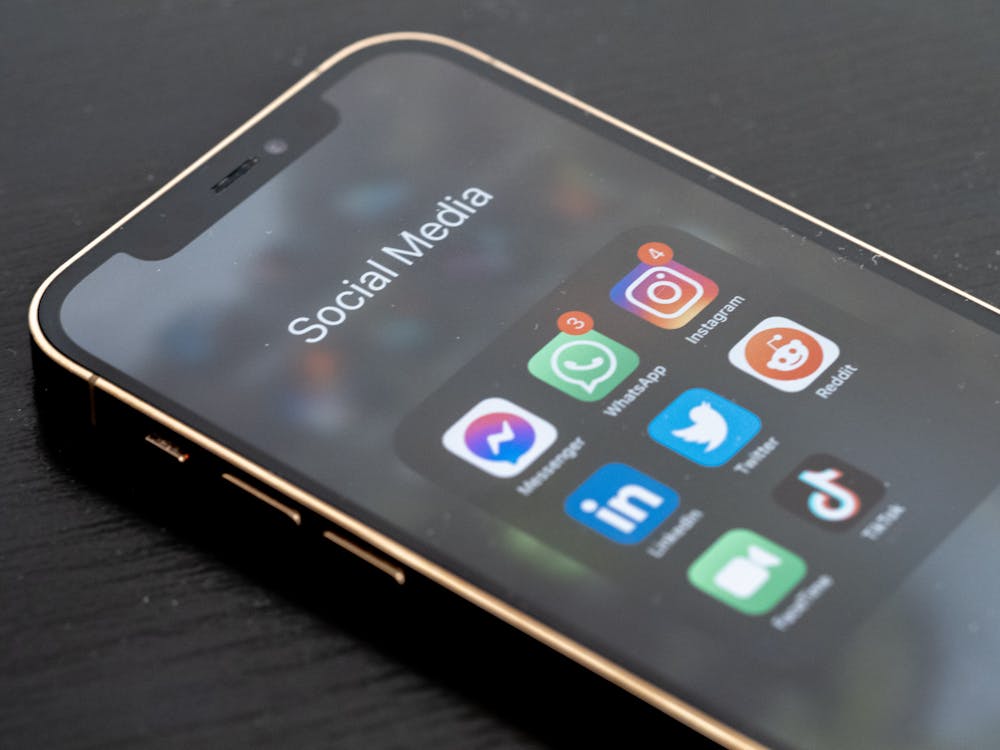By Tasnim Oyshi
Staff Writer
In the prime age of social media, encountering hate speech online is nothing new. Whether you rarely post on the internet or are a famous influencer, you have likely received or seen hateful content pop up on your feed.
Nowadays, this type of language has become entirely too common and even casual. Typically, the easiest object of netizens’ critiques tends to be celebrities.
This summer, we saw many being the target of public scrutiny, seemingly with a lack of good cause. Of course, it is understandable when a celebrity has done something wrong that they receive criticism for it.
Cases like Kanye West, who has made very controversial statements about the Holocaust or Sean “Diddy” Combs are ones where the disapproval was justified. In certain instances, however, they are bred without reason.
Possibly the most notorious example of this is Benson Boone, who gained an immense following after his song, “Beautiful Things,” went viral last year. Many praised his voice at the time, but this year, the reason for his virality was the opposite.
Many argue that Boone’s most recent album, “American Heart,” was bad. This is a valid argument to make about anything, as preference in music is subjective. Writing hate comments and sending death threats, however, is a completely ridiculous reaction to a pop musician making mediocre music, which is not a rare occurrence.
One is entitled to their opinion and sharing it can even be healthy. Once it gets to the point of genuine hatred over such mundane things, it becomes unreasonable and harmful to the people on the receiving end as well as the ones who contribute to it.
Recently, there has also been a rise in instances where a joke has evolved and ended up becoming hate. In Boone’s case, it started with people making jokes about his signature backflips during his performances last year.
At this point, netizens still had positive things to say about him and “Beautiful Things,” which was topping charts at the time. With the release of his new song, “Mystical Magical,” the jokes intensified and people began making fun of the absurd nature of the lyrics.
While it is true that “moonbeam ice cream” and “dancing at the movies” make absolutely no sense, the humor people once had regarding him took an unanticipated, dark turn. Netizens began to make TikToks bashing him as a person. They made death threats in his comment section and insulted his personality and voice. At one point, Boone himself asked his haters to have a good reason for their actions.
Boone was not the only one facing the brunt of this phenomenon. Another celebrity that went viral for the wrong reasons this summer was Pedro Pascal, who has had devoted fans and a positive reputation up until recently. During the press tour of “Fantastic Four,” internet users began to notice how touchy he was with co-star Vanessa Kirby.
It seemed like overnight, people’s perception of Pascal changed. He was suddenly creepy, rather than wholesome. What was completely ignored by haters was the fact that Kirby was reciprocating and initiating touchiness with Pascal, and Pascal has had a history of this type of behavior with both male and female costars in the past. The actor himself has attributed such behavior to his well-documented anxiety.
Pascal has also been a prominent advocate for the transgender and LGBTQIA+ community, which has made some wonder if the recent hate train against him was a result of that.
Even newer faces on the internet, such as the newest cast of “Love Island” have faced backlash, despite only being famous for a very short time. The seventh season of “Love Island” premiered in June, and the internet was immediately hooked. Contestants like Huda Mustafa and Jeremiah Brown saw instantaneous popularity and love from fans.
As the season progressed, however, comments made online by viewers of the show became nasty, and the producers even had to put out a statement for them to stop. This was especially concerning as people started to look into Mustafa’s young child, who lacks the ability to give consent to her personal information being public.
Online hate is already a problematic thing for an adult to deal with, but bringing a child into the matter unfairly subjects them to dangerous territories such as doxxing, cyberbullying and the ability for internet creeps to see them.
This type of intense hatred falls under the topic of parasocial relationships. This term is usually used when there is strong — and rather unhealthy — loyalty by fans to the people they follow. This generally comes with passion regarding the celebrity, and a positive type of obsession.
In the case of Boone, Pascal and “Love Island,” the obsession is negative and leads to netizens becoming hateful. Because these people feel confident enough to show themselves on screen and on social media, netizens have become familiar, and, frankly, too comfortable talking about them in any way they want.
But ultimately, the celebrities that people are hating on are strangers to them. These are not people that have committed personal harm against their haters or even had an actual interaction with them.
There is not really a good reason to criticize them so harshly, especially when comparing them to people like Combs or West. It really just boils down to how comfortable people have gotten online.
In today’s world, where parasocial relationships have become normalized, unfortunately hatred without reason has become a part of life on social media. While this is an unfavorable reality many of us have come to accept, we do not have to fall into the same line of thinking.
Social media can be a collaborative and positive place if we think twice before voicing our critiques online. Not only does this promote a healthier environment on the internet, but it also improves our own outlook on the world around us.







